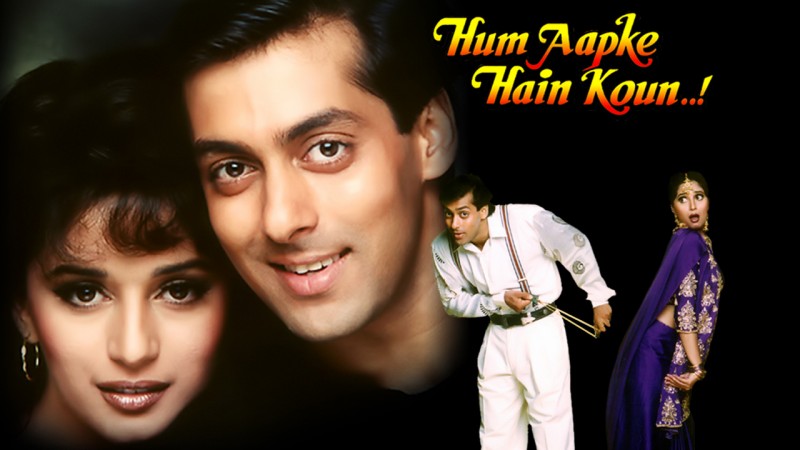
"Hum Aapke Hain Koun" is one of the few Bollywood movies to have made such an enduring impression. This family drama, which Sooraj R. Barjatya directed and was released in 1994, not only revolutionized the Indian film industry but also questioned accepted ideas about the number of songs and the duration of a movie. The film was criticized even before it was released because it was so long—3 hours, 30 minutes—and featured so many songs. This article explores the fascinating journey of "Hum Aapke Hain Koun..!"—a movie that dared to be ambitious, endured snippets of criticism, and ultimately became a colossal success after having its cut songs restored.
"Hum Aapke Hain Koun..!" was an ambitious undertaking from the start. Through the use of an engaging and endearing narrative, it sought to celebrate the fundamental elements of Indian family values, relationships, and traditions. In addition to Salman Khan, Madhuri Dixit, Mohnish Bahl, Renuka Shahane, and Anupam Kher, the movie also starred Madhuri Dixit.
The film's elaborate musical score was one of its distinguishing elements. The movie provided a melodic journey that melded seamlessly into the narrative with its 14 songs. Raamlaxman's music for the soundtrack was an instant hit, with songs like "Pehla Pehla Pyar Hai" and "Didi Tera Devar Deewana" becoming household names.
The movie received criticism from a variety of sources as it got closer to completion and word of its lengthy running time and song count spread. The viability of a movie that ran for three hours and thirty minutes in the hectic Indian film industry was questioned by many. Some claimed that the sheer volume of songs would disrupt the flow of the story and make it difficult for audiences to remain interested.
The filmmakers decided to make some cuts in response to the pre-release criticism and in an effort to streamline the movie. The movie only included one and a half songs in total. This choice wasn't made lightly because it required removing scenes from the story that had been thoughtfully incorporated into the choreography and music.
Different people had different opinions about the decision to shorten "Hum Aapke Hain Koun..!" Others regretted the loss of what might have been memorable musical moments, while some thought it was a wise decision to keep the audience's interest in the movie.
"Hum Aapke Hain Koun..!" was released in August 1994 despite pre-release concerns and the edited content. The response was nothing less than spectacular. The film's portrayal of familial ties, love, and tradition was warmly received by viewers, who rejoiced in it. The movie demonstrated the enduring appeal of Indian values and culture in addition to touching viewers' hearts.
But that wasn't where the story left off. The songs that were originally cut from the movie were added back in due to "Hum Aapke Hain Koun..!"'s enormous success and fans' fervent requests. This selection was a reflection of the movie's enduring appeal and the potency of its score.
The restored songs, such as "Ye Mausam Ka Jadoo Hai Mitwa" and "Chocolate Lime Juice," were well-liked additions to the movie. They improved the musical journey and helped to establish the movie as a classic that endures. These songs, which were once thought to be optional, turned out to be crucial to enjoying "Hum Aapke Hain Koun.." as a whole.
"Hum Aapke Hain Koun..!" went on to become one of the most successful Indian movies of all time in terms of box office revenue. Its success was not just a result of its grandeur but also of its capacity to move audiences of all ages. The film became a beloved part of Indian cinematic history as a result of its celebration of familial love and cultural values.
The length and number of songs in "Hum Aapke Hain Koun..!" defied expectations. Some of the musical elements were cut after pre-release criticism. The reintegration of these songs, which ultimately improved the cinematic experience, was prompted by the movie's resounding success and enduring popularity. The development of "Hum Aapke Hain Koun..!" is evidence of the potency of narrative, music, and the unyielding spirit of Indian cinema. It continues to be revered as a masterpiece that not only exceeded expectations but also left a lasting impression on the hearts of millions of people.
The Designer Who Redefined Bollywood Fashion
The Rahman Era Begins: How 'Rangeela' Rewrote Bollywood's Musical Rules
Alka Yagnik, Anuradha Paudwal, and Bollywood's Dubbing Drama